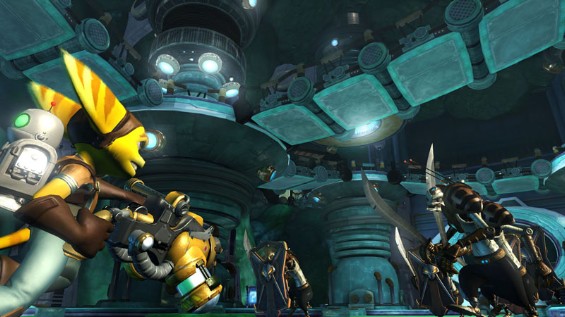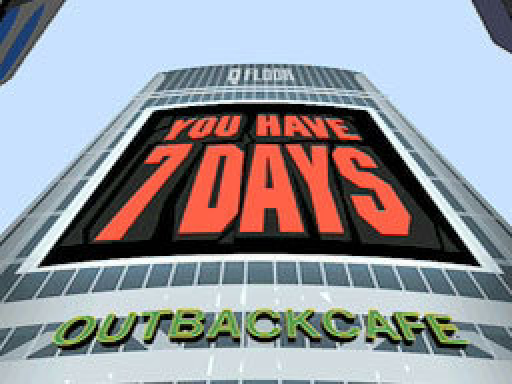Last Panel Hook: Keeping the Player Interested
2008, September 30th 3:51 AMThere's a very common comic-book writing technique focusing on the last panel on a page.
The idea is that the last panel is incredibly important. People reach that panel, and they have two options. They can turn the page and see what's next. Or they can stop reading. Now, technically, you can stop reading at any point – but how many people stop reading in the middle of a page? Nobody does. You reach the last panel and you decide then.
Therefore, you want that last panel to encourage the reader to turn the page. There is something exciting on the next page! You'll never know unless you turn that page! You have to see it! And, of course, once you do . . . well, you have to finish the page . . . and then, well, one more page won't hurt. Right?
I imagine there's a similar concept involving movie scenes. It's not much of a stretch to imagine a playwright equivalent. Books are trickier, as there's no particularly obvious "common break point" besides the end of the page, and there are a lot of pages in a book.
Extrapolating to video games isn't hard either.

I've been playing Ratchet and Clank Future: Tools of Destruction. It's a science-fiction action game, broken up into somewhere around 15 levels. Each level takes place on a unique planet – you travel to a planet, walk around killing things, then travel to the next planet.
There is almost no hook to keep you playing the game.
Oh, sure, there's another planet out there. Maybe this planet has a superpowerful world-destroying device on it! Maybe the next planet will contain some crazy alien artifact! But you quickly realize that the plot of the game has no effect whatsoever on the gameplay. You could be playing Ratchet and Clank's Grand Tour of the Galaxy for all the gameplay cares. That superpowerful device? It'll only factor in as a plot point, it's not like you'll get to use it yourself. Crazy alien artifact? Bet it'll just tell you where another planet is! Oh look it did, guess we'll go there now. Ratchet and Clank is still a fun game, but I never once found myself saying "one more planet", "one more quest", "one more zone", because the only reward to "another planet" is the ability to go to the next planet.
Start at point A, travel to point B. Find new planet. Repeat. It's a very linear game.

Conversely, there's a game called The World Ends With You. TWEWY is divided into "days". You have tasks to complete each day, and when you've finished them, the day ends, whether you want it to or not. Then the next day begins. There's no going back, at least until the end of the game.
TWEWY goes to incredible lengths to put a hook on the end of each day. Sometimes it's just a plain cliffhanger ending. Sometimes it's such a huge cliffhinger you can't imagine how the game can even continue after the events of that day. Isn't, like, the game over? Aren't we done? No. No, you are not done.
And sometimes – I love these – sometimes they show you half of the end-of-day events. Then the day ends, leaving you confused and wanting to know what actually happened. (Save your game! Continue to the next day? yes/no) The next day begins, and you get maybe five minutes of gameplay at most, and then they have a flashback to the section you just completed showing you what actually happened. And then the next day's plot seriously begins.
But, wait, you're already playing the next day! You can't stop now. You'll have to wait until the following day to turn the game off.
Start at the beginning of the day, go to the end of the day. Start another day. Repeat. TWEWY is an even more linear game than Ratchet and Clank is – and yet, it's far more interesting, and it does a far better job of making you want to play more. I'd argue that a lot of this is simply due to TWEWY's end-of-day hooks.
When it comes to game design, it's easy to spend too much effort on the game design part itself. Combat mechanics. Stats. Interfaces. It's important to remember that, with few exceptions, games also involve plot and writing. Weak writing can kill a game, and we don't actually know much about how games should be written yet – so we'd better steal as much as we can from other mediums.

